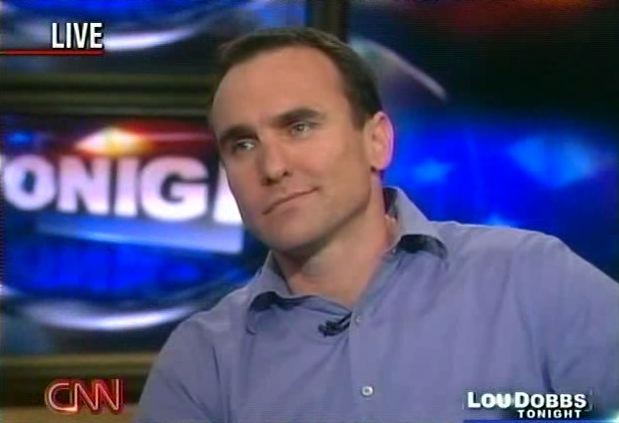LDT: "...a new school of thought that's being applied by the military."

Click photo to play
Length: 4:18
LOU DOBBS: Insurgents have killed three more of our troops in Iraq, all three Marines serving in al Anbar province. Eighty of our troops have been killed in Iraq so far this month; 3,337 of our troops killed since the beginning of the war; 24,764 troops wounded, 11,064 of our troops seriously.
Joining me now for more on this war in Baghdad -- in Iraq, is our Baghdad correspondent, our senior correspondent, a man extremely experienced, and who has just done an outstanding job reporting from there, Michael Ware.
Michael, good to see you here.
MICHAEL WARE, CNN CORRESPONDENT: Thanks, Lou.
DOBBS: Let's start with the fundamental issue. David Petraeus said that there have been improvements in al Anbar, and in Baghdad. But overall, the level of violence remains the same. Give us your interpretation.
WARE: Okay. General Petraeus is right. He's a straight shooter, he's a straight talker. And he represents a new school of thought that's being applied by the military in Iraq.
The surge in Baghdad is changing certain types of violence. However, what we're seeing overall is that the deaths among Iraqi civilians each month and deaths among U.S. service personnel each month maintain the same as before the surge.
What's changed is that people are dying in different places and in different ways. And the successes in al Anbar province are solely attributed to the U.S. cutting a deal with the Ba'athist insurgents and unleashing them, giving them license to essentially conduct an assassination campaign against al Qaeda.
DOBBS: And today we also had the news from a serving senior officer, Colonel Yingling, saying straight out, the general staff of the United States Army is pitiful, and has been a moral failure, an intellectual failure. I've been critical of the general staff for some time in the Pentagon.
And he said something most compelling to me, an articulation that is, to me, profound. He said our generals are not worthy of our soldiers.
Give us a sense of the thinking, the morale, and the attitude toward leadership on the part of our troops toward their leadership.
WARE: Well, the boys in the field, the grunts, these kids who are sweating it out and bleeding it out every day will continue to follow orders. They're professionals.
DOBBS: Sure.
WARE: And they're not fighting for a general. They're not fighting for an administration. Day-to-day, they're fighting for the man next to him, for their brother. And they'll continue in that vein.
Now, in terms of the overall strategy, there's troops that are becoming increasingly cynical and disillusioned. They were on their last tour. Many of them are coming back for a third tour. They can see for themselves a deteriorating situation, and the increasing sophistication of their enemy.
So what's being said in this article by Lieutenant Colonel Yingling -- I spent time with his forces, I was in the battle of Tal Afar with these men -- is really a furtherance of a growing school of thought within the military. And we're seeing that school of thought in its ascendancy now with General Petraeus commanding the war.
DOBBS: And the view toward the leadership, of the general staff on the part of the troops?
WARE: Well, of course, the individual soldiers and Marines are forbidden by Army regulations to directly criticize their commanders, either in uniform or out of uniform. Nonetheless, as I said, these guys and girls know that it's not working.
DOBBS: Petraeus offering hope?
WARE: Yeah, definitely. Petraeus -- General Petraeus is coming in with fresh eyes and a fresh approach. This is General Petraeus' third tour of Iraq. He knows the situation. There's been an evolving school of thought in terms of tactics and the ways to address the insurgency. He's applying those. People are looking to him for that leadership.
DOBBS: That's a lot to put on one man, even a man who is so well respected, regarded for his capacities, as General David Petraeus. You're pretty good with your capabilities as well. Thanks for being here, Michael Ware.
WARE: Thank you, Lou.
